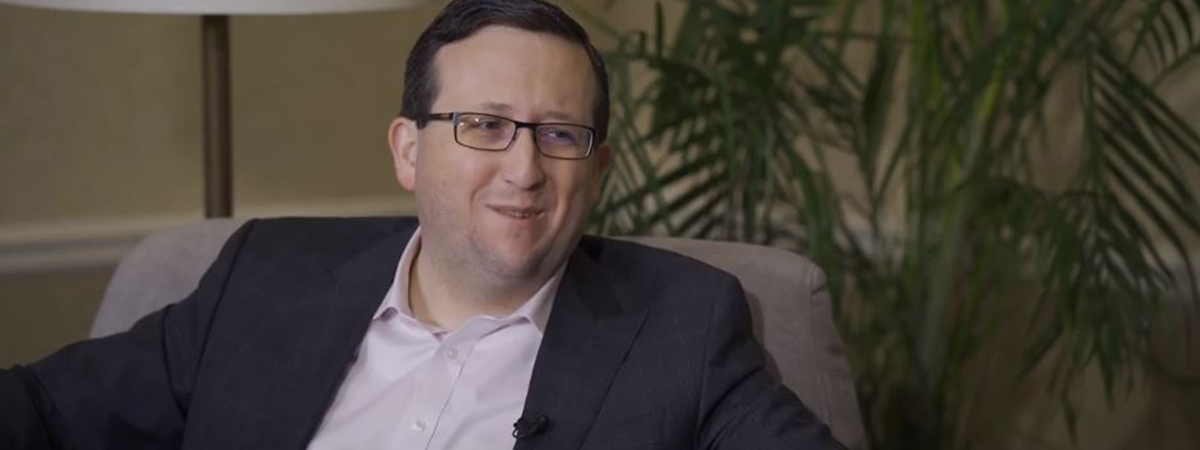Editor's Note: As we gear up for this Fall's Oliver Wyman Health Innovation Summit in Chicago, we continue to reflect on last year’s executive takeaways to assess healthcare’s ongoing journey towards progress. In this interview from the 2018 Oliver Wyman Health Innovation Summit in Dallas, Thrive Global's Agapi Stassinopoulos chats with Oliver Wyman's Sam Glick about an "Aha!" moment Oliver Wyman had helping leaders develop new partnerships, the stigma surrounding mental health (which Sam later wrote more about in Harvard Business Review), and what well-being habits he practices in the workplace.
Interview Highlights
- "The Oliver Wyman Health Innovation Summit started out as an observation. We were being hired by CEOs and their teams at big healthcare organizations that wanted to do something different in health, and do better at health. As we did that, we found no one player can solve all the problems in healthcare. If you think from an individual's perspective, you have to be able to solve financing, care, prevention, wellness, and technology. If you're a health insurer or a hospital or a technology company, you can’t do it all on your own." (00:35)
- "We found that in the industry, [people across sectors] largely didn't know each other. It was a funny thing, emblematic of some of [healthcare's] challenges. We found health plan executives would get together with other health plan executives, and hospital executives would get together with other hospital executives. ... [When we were working to help leaders form partnerships] it was a little like telling someone to get married when they'd never been on a date." (1:25)
- "Today [regarding mental health], we say there are problems from the forehead up, and then there are problems with the rest of the body. Anybody who’s ever [been hospitalized for] a physical health condition will tell you those are times when you’re anxious, depressed, and lonely – that affects your mental health, and vice versa. If you have mental health issues, we know you don’t live as long [and] you’re more likely to have heart trouble. We know that sleep, mental health, and life span are related. We have to integrate the system. [Behavioral health] is just health.” (4:14)
- “This idea that I’d be comfortable sitting on a bus telling somebody about my knee being replaced or about the back pain I have, but I’m not comfortable sitting there talking about a mental health problem creates this stigma that means we talk about [mental health] way too late.” (5:14)
- “If a celebrity gets cancer, they’re at every fundraiser and on every magazine cover talking about it, and we need to be doing the same thing about mental health struggles.” (6:16)
- “Employers spend about four percent of their money on treating mental health, but it affects nearly a quarter of the money they spend on the claims that come through.” (6:45)
- “We know that when seniors are less lonely, they go to the hospital and skilled nursing less, they can stay in their homes longer, and they’re happier.” (6:54)
